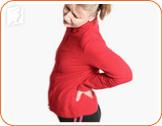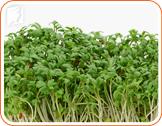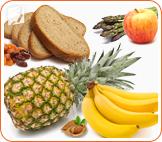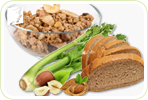
It is common to experience bloating as a result of certain foods, overeating, and not drinking enough water. However, menopausal women can also experience frequent bloating as a result of changing hormone levels. Bloating is described as a feeling of tightness or fullness in the abdomen, which is caused by fluid retention and gas. Symptoms may also include flatulence, discomfort, and burping.
About Watercress

Watercress is an aquatic plant that is native to Asia and Europe. It is fast-growing and produces clusters of small green and white flowers. It is believed that watercress is one of the oldest vegetables consumed by humans.
This vegetable contains several nutrients that keep the body healthy . Watercress contains folic acid (vitamin B9), calcium, iron, and vitamins A, B1, and C.
Watercress and Bloating

Women, not just those who are transitioning through menopause, are encouraged to incorporate this vegetable into their diet. Not only does it have many health benefits, but it also helps prevent bloating. Since it is a natural diuretic, watercress helps decrease fluid retention. Vitamin B1, which is in found in this vegetable, is also beneficial to the digestive tract.
Other Foods That Help Relieve Bloating
Although watercress is good for bloating, it isn't the only food that can alleviate it. Some other foods that are just as beneficial include:

- Bananas
- Prunes
- Apples
- Pineapple
- Asparagus
- Yogurt
- Whole grains
- Lentils
- Nuts

When consumed regularly, these all can help reduce bloating and uncomfortable symptoms during menopause. Many of these foods are high in fiber, which can help the digestive system to function better.
More about Menopausal Bloating
Each woman experiences menopause and its symptoms differently. Some may not have bloating, while others experience it frequently. Watercress and other vegetables can help reduce bloating and help improve a woman's overall health. Health experts recommend that an average person eat at least three servings of leafy greens like watercress every day. Click on the following link for more information about how to deal with other menopausal symptoms.
Sources
- U.S. Department of Agriculture. (n.d.). Full Report (All Nutrients): 11591, Watercress, raw Retrieved December 10, 2015, from http://ndb.nal.usda.gov/ndb/foods/show/3259?fgcd=&manu=&lfacet=&format=Full&count=&max=35&offset=&sort=&qlookup=11591


